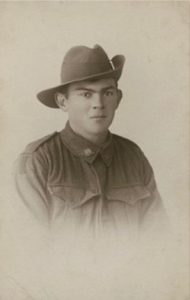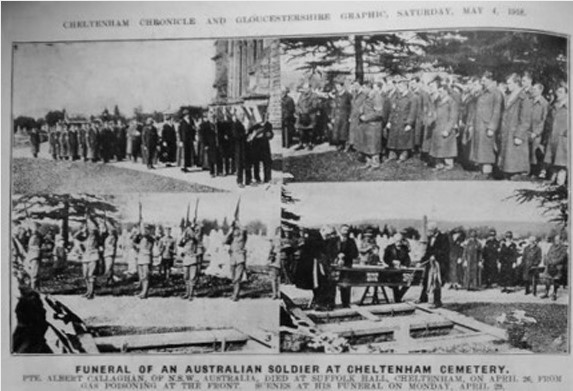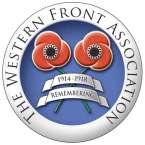54th Battalion, Australian Infantry

Albert Ross Callaghan signed his Attestation papers as ‘Ross Callaghan’, so presumably that was the Christian name by which he was known.
Ross Callaghan was born in Sydney, New South Wales in 1887. When he attested he was living in the Surry Hills locality of Sydney and his occupation was a tailor. He gave his next of kin as his mother, Emily Jane Callaghan of Victoria Street, Kogarah, NSW.
His attestation, at Kiama, NSW, was on 23 December 1915 and his first posting was to the 12th Re-enforcement of 17th Battalion, Australian Infantry. Prior to transferring to the 13th Re-enforcement, 17th Battalion, on 27 April 1916, he spent about six weeks at Signal School. On 3 June 1916 he embarked from Sydney, on board HMAT Kyarra destined for the UK.
Following arrival in early July he departed for France on 30 September 1916 and arrived at the 2nd Australian Division Base Depot at Etaples on 2 October 1916.
On 12 October 1916 he joined the 54th Battalion, Australian Infantry in the field. The Battalion was part of the Australian 5th Division. In early 1917 the battalion was in action during the German withdrawal to the Hindenburg Line and in the Battle of Polygon Wood, between 26 September and 3 October. On 11 October, one year on from his joining 54th Battalion, Private Callaghan was granted ten days’ leave from France, returning to his unit on 21 October 1917.
A further one month’s leave in the UK followed. On 9 March 1918 eight days after returning to his unit he was wounded in action on 17 April 1918. whilst in action during the second phase of the German Spring Offensive. He had suffered severely from the effects of mustard gas poisoning and after passing through 12th Casualty Clearing Station he was put on an ambulance train and taken to the 9th General Hospital at Rouen, being admitted on 19 April. On the 21 April he crossed the Channel to the UK on board the Hospital Ship G Tully Castle.
He was taken to Suffolk Hall Voluntary Aid Despatch Hospital, Lypiatt Road, Cheltenham. This hospital was a former school, staffed by volunteers of No 26 Gloucestershire VAD. Here he died as a consequence of mustard gas poisoning on 7.15am on 26 April 1918. He was aged 29. His burial followed on 29 April 1918 at 4.30pm. It was a full military funeral with the firing party and bugler provided by Gloucester Volunteer Regiment. Some Australian patients from local hospitals attended. A CWGC headstone now marks his grave.

Photographs from Private Callaghan’s funeral
(Cheltenham Chronicle and Gloucestershire Graphic dated 4 May 1918)
